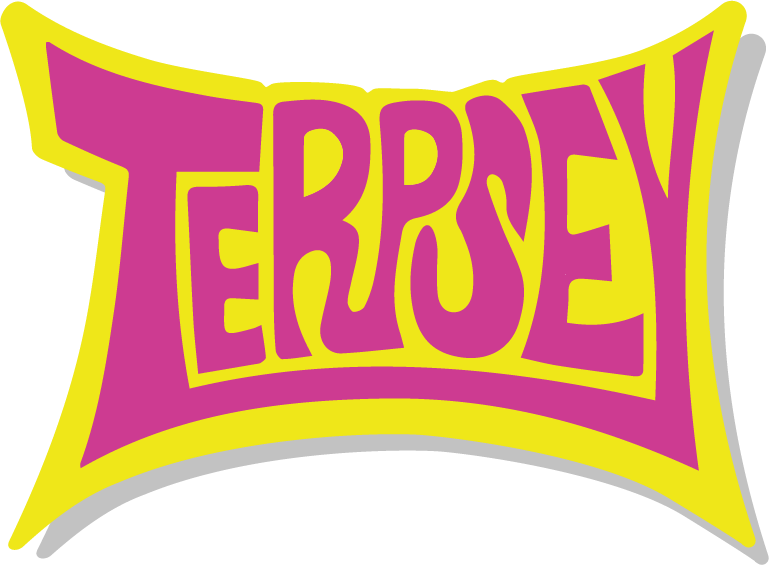Workplace stress is the unfavorable physical and emotional responses triggered by your office work. It depends on the job demands and how much control you have over fulfilling them. Generally, the combination of high job requirements and lack of control over the situation can contribute to stress. It can also affect your employer or colleagues. When coping with stress, there are several proactive strategies you can use. For instance, take the benefit of herbal extracts, counseling services, stress management training, lifestyle changes, mental fitness, and self-help. Here’s a discussion on a few strategies to help control stressful conditions using THC for Stress.
Some stress is reasonable and often referred to as a challenge. But if it is chronic, you should find the underlying cause of your stress and take steps to address them. It can come from one single or multiple official events. But if it persists for a long time and becomes hard to handle, physical and mental changes may occur.
Also Read: Therapeutic Uses for THC
What Is Work Stress?
Office stress may occur due to job insecurity, long hours, harassment, heavy workload, or unhealthy behavior of colleagues. Regardless of your reason, work-related stress could have significant health consequences, ranging from metabolic syndrome to anxiety disorder. Research considers work stress as a risk factor for cardiovascular disease.
The symptoms are psychological, physical, and behavioral. They may vary from person to person depending on the intensity and cause of stress. The symptoms include:
- Fatigue
- Headache
- Heart palpitations
- Insomnia
- Stomach upset
- Anxiety
- Pessimism
- Aggression
- Isolation
- Mood swings
- Cognitive decline
Stress Management Techniques
Stress at work could overwhelm anyone. A constant barrage of emails, slack messages, ringing phones, and unexpected meetings from coworkers is enough to make you feel agitated. Feeling some tension is normal, but if it takes over your life, it is a cause of concern. When you find yourself emotionally exhausted due to work stress, identify the reason, and take the necessary steps. Here are some strategies for reducing job stress.
Stay Organized
Being available 24/7 at work will exhaust you in a short while. Establish boundaries between your work and personal lives to prevent potential stress. Part of this involves setting aside time for socializing and planning to stay organized. Make a to-do list on a paper or computer file and ensure you do things accordingly. Elsewise, schedule your weekly work in advance on your calendar. Also, make rules for when you will check your email or take phone calls.
Set realistic deadlines for everything at the start of your work week by preparing tasks and ranking them by importance. This way, you can avoid the adverse effects of clutter and work more efficiently. Keeping track of your time can help you feel less stressed at work. It also means less rushing in the morning to avoid being late and fewer hassles at the end of the day.
Eat Healthy Diet
Our brains release the hormone cortisol when we are under stress. It enhances our craving for fatty, sweet, and salty food because of the momentary pleasure they provide. Ironically, eating induced by stress exacerbates our health. Foods high in sugar or fat, such as pizza, hamburgers, and ice cream, make us feel lethargic. As a result, we are less likely to address the issues at hand. It, in turn, adds to our stress.
Hence, we should avoid foods that lead to lethargy and sluggishness. Nicotine, alcohol, and caffeinated drinks like coffee can also boost your anxiety. You should eat nutritious food rich in complex carbs, including whole wheat bread and vegetables. According to a 2015 study, nutrient-dense foods are vital for patients with mental health symptoms.
Researchers suggest eating fish, seafood, beans & legumes, leafy greens, olive oil, yogurt, and nuts for brain health. A healthy diet will fuel our brains and help us maintain concentration. Eventually, you can learn to handle work pressure and workplace stress.
Have A Strong Support Network
You should rely on a reliable support system if you’re having trouble getting through a typical work week. For instance, you can ask other parents if they can carpool your kids to school on specific days. Or, you can talk with your friend and share your work-related problems. Research shows that talking and sharing negative emotions with a trustworthy person can strengthen immunity and reduce emotional distress.
Lack of social support could cause loneliness, isolation, and monotony. On the contrary, having people you can rely on during critical times can help relieve some of your work stress. They can share their experience, give a helping hand, or suggest ways to manage stress. So, if you feel stressed, try to develop meaningful relationships with supportive family, friends, and coworkers. Their company forms a crucial aspect of your life. However, remember that the goal is to cope with stress with close friends and confidants. Avoid interpersonal conflicts at work or outside as much as you can.
Seek Counseling
Accepting help from trusted friends or family members is a good idea to cope with stressful work situations. Some offices and employers may also provide stress management tools through an employee assistance program. Their resources may include online information, counseling, and referral to mental health professionals.
Counseling for workplace stress aims to determine the root causes of a worker’s stress at work. In the process, counselors discuss the situation in a confidential and nonjudgmental setting. You can talk about all kinds of issues that you’re experiencing.
Experts will help you understand the source of your stress and identify the best strategies to manage it. Besides overcoming stress, the benefits of stress management counseling are as follows:
- Relieves anxiety
- Increase in self-confidence
- Better self-understanding
- Enhances productivity
- More engaged workplace
- Healthier state of mind
Also Read: Reasons To Prefer Edible THC: Are They Effective?
Learn Relaxation Techniques
Relaxation methods might not be a priority in your life when you are dealing with high obligations and tasks. But they can work wonders to alleviate your everyday stress. Some of the popular ways to evoke the relaxation response and reduce stress are:
Meditation
This practice helps you focus on the present situation, clearing your mind of thoughts that wander to the past or the future. One does meditation while sitting comfortably and concentrating on breathing. Over the past few years, this relaxation method has become a popular choice. According to research and anecdotal evidence, it can help people suffering from anxiety, depression, or pain.
Yoga
Yoga lowers stress by promoting physical and mental relaxation. The physical positions encourage flexibility, release tension, and lessen pain. With the help of yoga poses, you can also overcome physical blockages like muscle knots. Additionally, they stimulate the release of endorphins, the feel-good hormones that can improve how you cope with stress and lift your mood.
Regular Exercise
Exercising regularly for at least 30 minutes can positively affect your mood, physique, and emotions. It can help relieve factors that often go hand-in-hand with stress. For instance, it helps deal with tension, insomnia, anxiety, anger, and mild depression. To experience stress relief, you don’t have to be a marathon runner or athlete. You can perform any aerobic exercise, such as:
- Brisk walking
- Biking
- Swimming
- Rowing
- Dancing
- Jogging
- Cycling
If you are a fitness-conscious person, you can join a gym club or work out at home. Experiment with various activities until you find some that you enjoy. Consider weight lifting or resistance band activities. Working out with someone else can also increase the stress-relieving effects of the workout. Sharing it with family or friends can make exercise more enjoyable and less like work. You’ll be more likely to stick to your workout routine if you’re having fun. Even something as simple as gardening or taking the stairs instead of the elevator can provide an emotional boost.
Use Delta-9 THC For Stress

Another discrete way to relieve your work stress is to incorporate THC products into your routine. THC (delta-9 tetrahydrocannabinol) is the psychoactive ingredient of cannabis plants that contains immense therapeutic properties. Research shows that THC can interact with human ECS (endocannabinoid system) and regulate the stress response. It binds to cannabinoid receptors and mimics endogenous compounds (anandamide). It tends to provide sufficient endocannabinoids, regulate GABA, and create a dopaminergic effect. This modulation raises serotonin and dopamine levels in the brain areas linked to pleasure, reward, memory, and stress.
People who use THC may feel better and have more peace of mind. However, there are a few things to consider before using THC for stress:
- Buy quality goods from reputed brands
- Check the certificate of analysis (COA)
- Ensure THC level is less than 0.3%
- Consume an ideal dose of THC
- Start low and increase gradually
- Take note of other ingredients
- Go for hemp-sourced THC derivatives
- Consult your doctor if new to cannabis
- Find the best consumption method
- Opt for flavorful THC gummies
Bottom Line: THC For Stress
Any job can have a stressful element, such as low salaries, excessive workloads, or conflicting demands. It is a concerning matter if work-related stress takes a toll on your physical and emotional health. You should take immediate steps to mitigate stress symptoms. Developing healthy eating habits, asking friends for help, meeting a counselor, or using THC products are a few ways to manage the situation. However, if work stress continues to create hardship, talk to a psychologist. The specialist will examine your health and suggest the best way to cope with your symptoms according to your medical condition.
Interesting Reads:
Why Is Delta 9 THC Used By Yogis?

